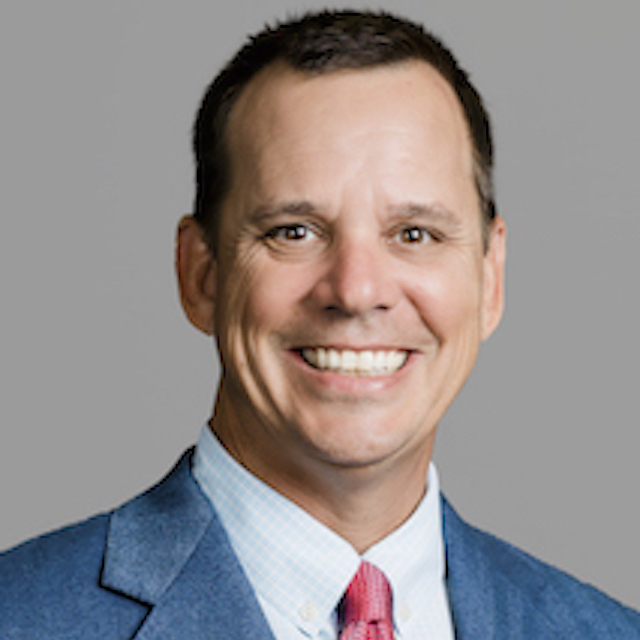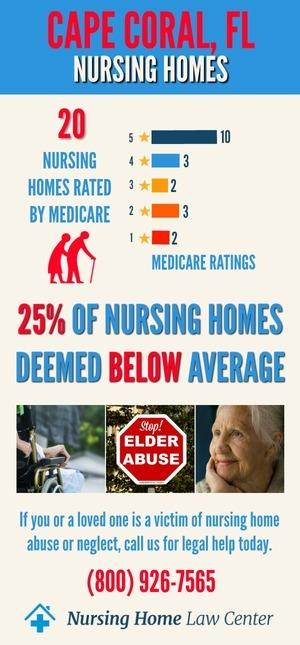The Nursing Home Law Center is committed to providing the legal resources necessary to hold negligent facilities accountable.
Cape Coral Nursing Home Abuse Lawyer

Licensed in Florida
Nursing home abuse is a heartbreaking reality that affects countless families in Cape Coral, Florida. It is crucial for victims and their families to seek immediate legal help from an experienced nursing home abuse lawyer to hold negligent parties accountable and ensure the justice and compensation they deserve.
If you or a loved one has suffered abuse or neglect in a Cape Coral assisted living facility, contacting a skilled attorney is the first step in protecting your loved one’s rights and well-being.
Why Hire Nursing Home Law Center
At Nursing Home Law Center, our primary goal is to obtain justice and compensation for those impacted by nursing home abuse. Our seasoned legal team has a strong history of successfully managing nursing home abuse cases with care and achieving substantial settlements and verdicts.
We leave no stone unturned in our investigations, ensuring that every aspect of the abuse—whether it’s related to medical costs, emotional distress, or other damages—is thoroughly addressed. With our extensive knowledge of nursing home abuse claims, we handle the legal complexities with expertise and are dedicated to fiercely protecting your rights.
We offer compassionate and clear support throughout the process, ensuring you and your loved ones remain informed, safeguarded, and confident at every stage.
Types of Cases Handled by Our Cape Coral Nursing Home Abuse Lawyers

Nursing home abuse refers to the intentional or negligent actions by caregivers that result in harm or distress to assisted living facility residents. Our Cape Coral nursing home abuse lawyers are well-versed in handling various types of nursing home abuse cases, each requiring a unique approach to ensure justice is served.
Below are the primary types of cases we manage:
Physical Abuse
Physical abuse involves any form of physical force that causes injury or pain to assisted living facility residents. This assault can include hitting, slapping, pushing, or improper use of restraints. Restraints should only be used when necessary and in accordance with strict medical guidelines.
Mental Abuse
Mental and emotional abuse is often harder to detect but can be just as damaging as physical abuse. It includes verbal insults, threats, humiliation, and isolation.
Our attorneys have extensive experience in identifying and proving cases of mental and emotional abuse in any Cape Coral healthcare center. Mental abuse demands immediate attention and legal action to prevent further harm.
Sexual Abuse
Sexual abuse in nursing homes is a horrific violation of a resident’s rights and dignity. It includes any non-consensual sexual contact or behavior. Assisted living facility residents, particularly those with cognitive impairments, are vulnerable to such egregious cases of abuse.
Our Cape Coral nursing home abuse lawyers are committed to seeking justice for victims of sexual abuse and holding the perpetrators accountable.
Medical Malpractice
Medical malpractice in nursing homes can lead to severe injuries or even death. This type of abuse includes bedsores, medication errors, improper medical treatment, and failure to provide necessary medical care.
Bedsores, also known as pressure ulcers, are often a sign of neglect, particularly in cases where residents are bedridden or have limited mobility. These cases demand immediate attention and legal action to prevent further harm.
Negligence
Negligence in nursing homes encompasses a range of failures, including poor hygiene, malnutrition, dehydration, and elopement (when a resident leaves the facility unsupervised).
These forms of neglect can lead to severe health issues and a decline in the resident’s overall well-being. Our Cape Coral nursing home abuse lawyers work tirelessly to address such negligence and secure compensation for the affected residents.
Financial Abuse
Financial abuse occurs when staff members or others with access to a resident’s financial records manipulate them for personal gain. This exploitation can include unauthorized withdrawals, forged signatures, or coercing the resident into changing their financial arrangements.
Victims of financial abuse may lose their life savings or be unable to afford necessary medical care.
Wrongful Death
When a resident dies due to elder abuse, neglect, or medical malpractice, surviving family members have the right to seek justice through a wrongful death claim. Our Cape Coral nursing home abuse lawyers are dedicated to supporting families during this challenging time and pursuing the financial compensation they deserve.
Understanding Your Legal Rights
Assisted living facility residents are protected under both federal and state laws.
The Nursing Home Reform Act of 1987 establishes the legal rights of senior citizens, including the right to be free from abuse, neglect, and exploitation.
Florida law also provides specific protections for senior citizens in nursing homes and assisted living facilities, ensuring they receive proper care and are treated with dignity.
Eligibility to File a Claim
Anyone with a legal interest in the well-being of a nursing home resident, such as family members or legal guardians, can file a claim on behalf of the resident. Our Cape Coral nursing home abuse lawyers will guide you through the legal process, ensuring that the rights of your loved one are fully protected.
Liability in Nursing Home Abuse and Neglect Cases
Multiple parties can be held liable for nursing home negligence. These may include:
- Individual caregivers: Those who directly inflict physical or emotional harm on residents can be held personally responsible.
- Nursing homes: The assisted living facility may be liable for negligence, especially if it has failed to train or oversee its staff adequately.
- Medical professionals: Doctors and nurses who engage in medical malpractice, such as making medication errors, can also be held liable.
- Third-party contractors: Outside service providers involved in resident care may also be responsible for any harm caused in certain situations.
Our legal team will thoroughly investigate your case to identify all negligent parties and hold them responsible for their actions.
How Our Cape Coral Nursing Home Abuse Attorneys Can Help
With years of experience handling nursing home neglect cases in Cape Coral, our attorneys are well-equipped to assist you in seeking justice and compensation. Here’s how we can help:
- Free Consultation: We offer a free case evaluation to review the details of your situation and determine the best course of action.
- Case Investigation: Our team will conduct a thorough investigation, gather evidence, interview witnesses, and review medical records to build a strong case.
- Filing the Claim: We will handle all aspects of filing the claim, ensuring that it complies with legal requirements and is submitted within the statute of limitations.
- Settlement Negotiation: Our attorneys are skilled negotiators who will work to secure a fair settlement that covers all damages, including medical expenses, pain and suffering, and punitive damages.
- Trial if Needed: If a fair settlement cannot be reached, we are fully prepared to take your case to trial to seek justice.
Common Signs of Elder Abuse Among Nursing Home Residents
In Cape Coral, FL, there are 24 Medicare-certified nursing homes, with 12 of them (50%) having an overall rating of below or much below average. 14 facilities (58.3%) fall short in health inspections, and six nursing homes (25%) have inadequate staffing levels. Only one facility (4.2%) is rated poorly in quality measures. [1]
The worst-rated nursing homes in Cape Coral include:
| Aspire on Santa Barbara | Eagleridge Health and Rehabilitation Center |
| Gulf Coast Village | Page Rehabilitation and Healthcare Center |
| Rehab & Healthcare Center of Cape Coral | Winkler Court |
Recognizing the signs of nursing home negligence is critical in protecting your loved one. Common indicators include:
- Unexplained injuries or repeated hospital visits, which may indicate physical abuse;
- Sudden drops in weight or signs of dehydration;
- Neglected personal hygiene or dirty living environments;
- Noticeable changes in behavior, such as increased anxiety, depression, or social withdrawal, potentially due to psychological abuse;
- Unusual financial activity or missing personal items.
What to Do If You Suspect Nursing Home Abuse
- If you suspect that a loved one is suffering from elder abuse, follow these steps:
- Call 911: Contact local law enforcement if there is immediate danger or if the resident requires urgent medical attention.
- Report to the assisted living facility administrator or management to document the abuse and demand an investigation.
- File a complaint with your local Ombudsman’s office. Ombudsmen are advocates for nursing home residents and can help address concerns about care and abuse.
- Contact a nursing home abuse lawyer: A Cape Coral nursing home abuse lawyer can provide legal advice and take swift action to protect your loved one’s rights.
Damages You Can Recover Through a Nursing Home Abuse Claim
Victims of nursing home negligence might be eligible for several forms of compensation:
Economic Damages: These address financial losses, including medical bills, relocation expenses, and other related costs.
Non-economic Damages: Compensation is provided for non-financial impacts such as pain and suffering, emotional distress, and a reduced quality of life.
Punitive Damages: In egregious cases involving severe negligence or intentional harm, punitive damages may be awarded to punish the wrongdoer and deter similar behavior in the future.
The Cost of Hiring a Cape Coral Nursing Home Abuse Lawyer
Our firm operates on a contingency fee basis, meaning you pay no legal fees unless we win your case. This arrangement allows you to pursue justice without worrying about upfront costs. We believe that every victim of elder abuse deserves access to quality legal representation.
You Have Limited Time to Take Legal Action in Cape Coral
Under Florida law, you have a limited time to file a nursing home abuse claim. The statute of limitations typically requires claims to be filed within two years of the incident. It’s important to act quickly to ensure your case is heard and you can seek justice for your loved one.
Contact a Cape Coral Nursing Home Abuse Attorney Today!
If you or a loved one has suffered abuse in a Cape Coral assisted living facility, our experienced Florida nursing home abuse attorneys are here to help. With a proven track record of handling nursing home neglect cases, we are committed to seeking justice for the elderly and vulnerable members of our community.
Call us at (800) 926-7565 or fill out our contact form.
References: [1] Medicare

